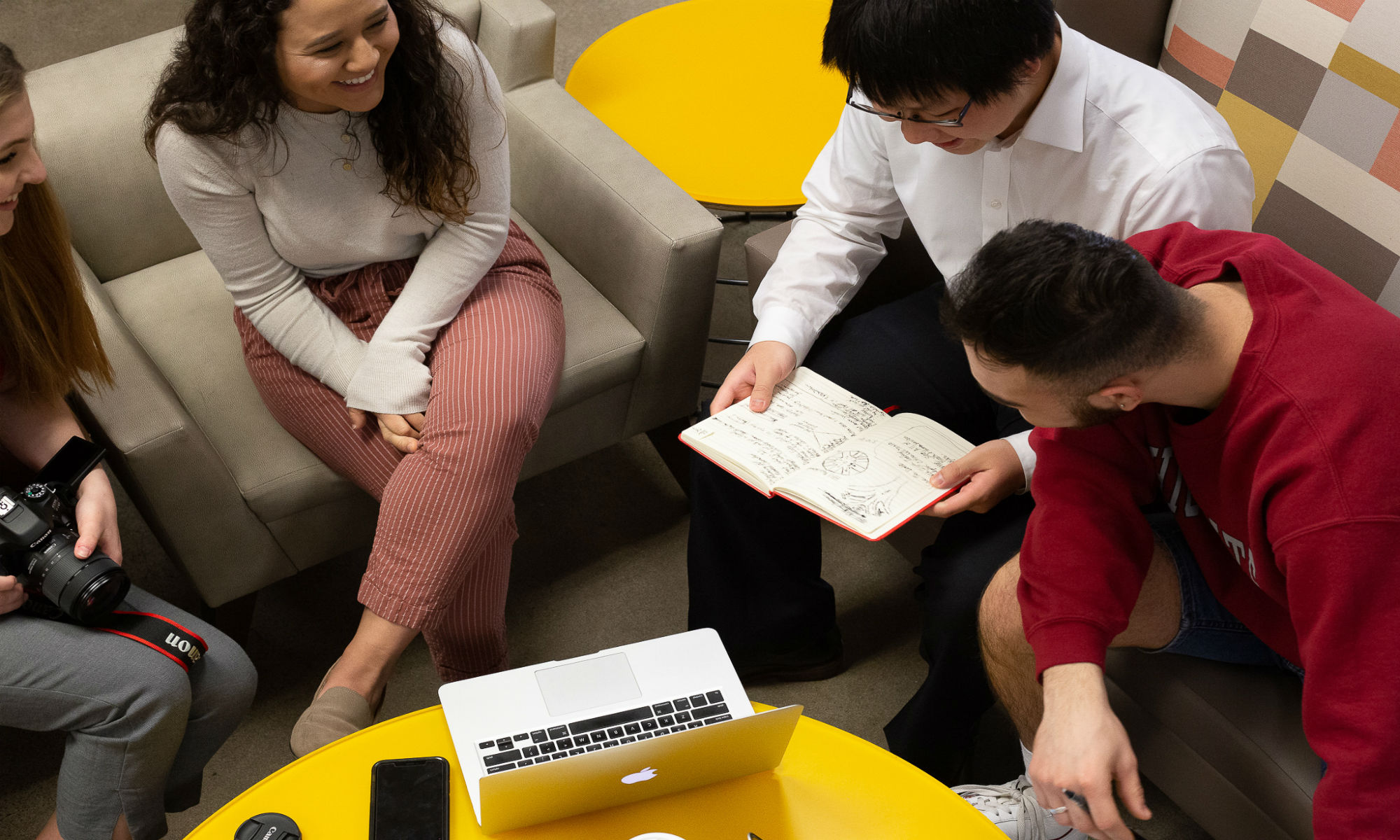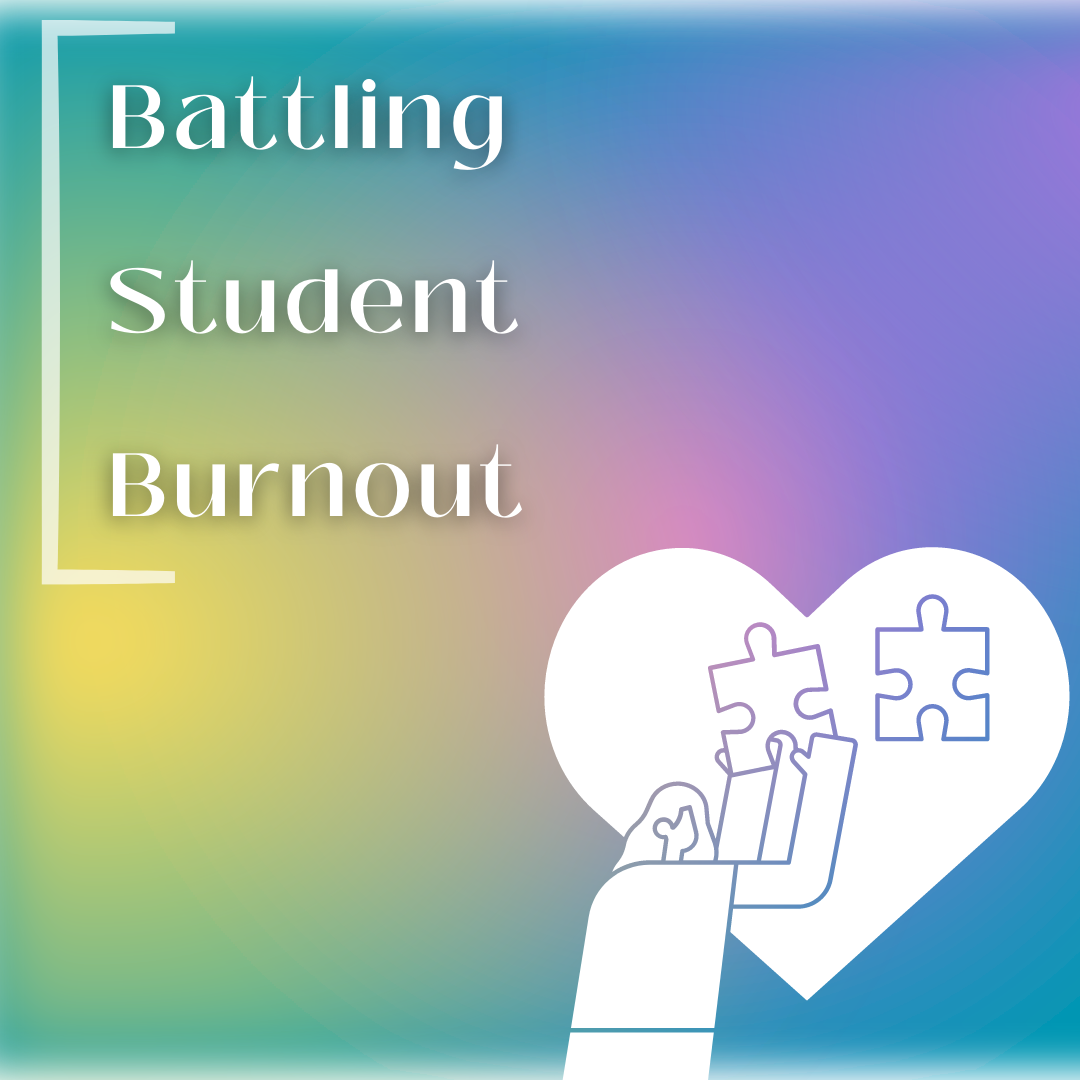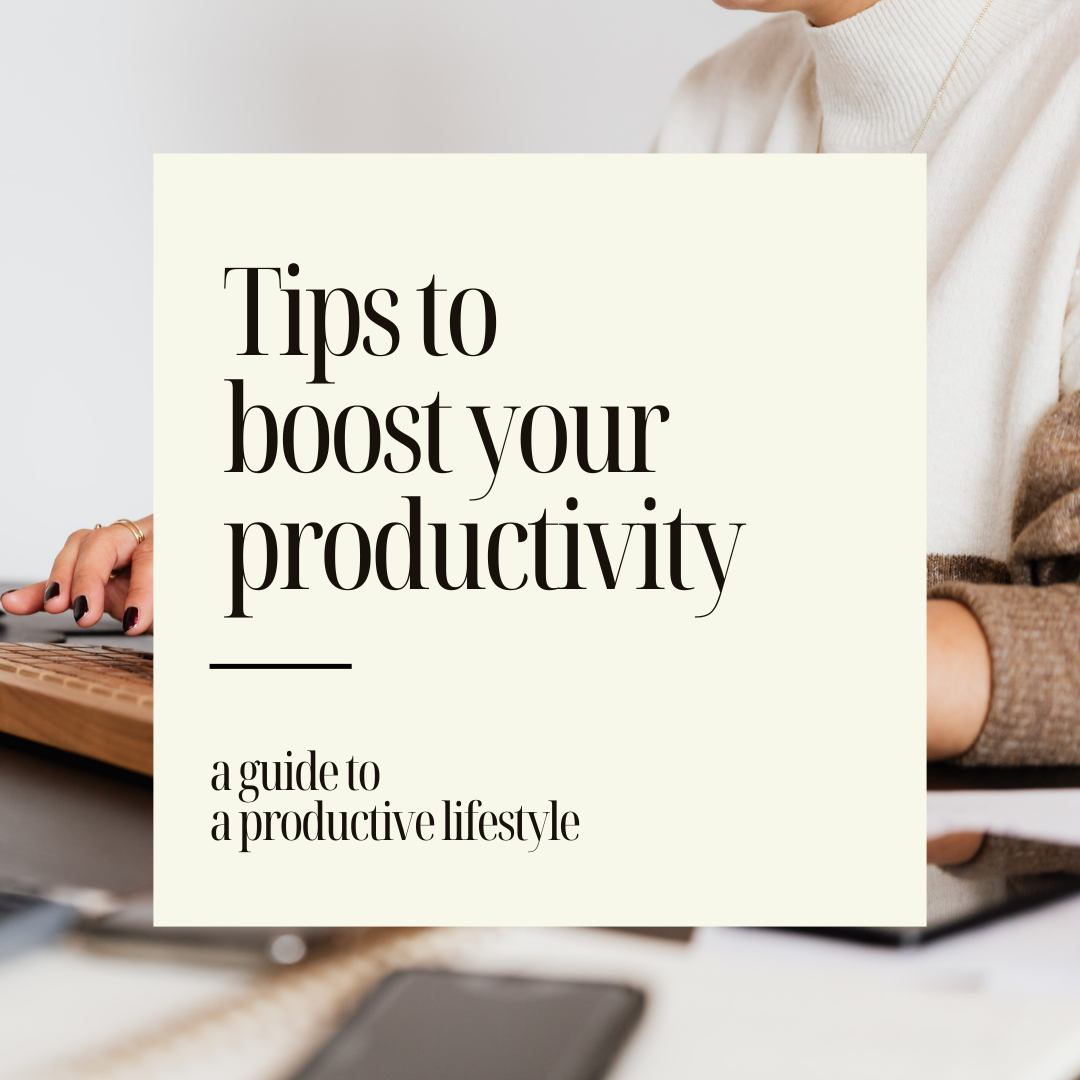By Erin Aquilino
As I approach graduation in December, there is an overwhelming anxiety that as I enter the workforce, I will not be qualified. Despite five and a half years of education and working towards a BFA in Communication Design, there is a part of me that feels like somehow I cheated my way to this point, like I am a fraud.
While the logical part of my brain knows that I worked hard to get to this point, through personal challenges and setbacks, a global pandemic, and the run-of-the-mill struggles that every college student faces, I can’t help but feel like I subconsciously scammed my way through college. As a graphic designer, I can’t help but feel like I’ve never come up with an original idea. Have I been mistaking infringement for inspiration all of this time?
Turns out that what I am feeling is not unusual, in fact “up to 70% of people have experienced symptoms of imposter syndrome” (Albanese), the feeling of workplace fraudulency and being unqualified (Giglio), despite actually having worked hard and being equipped for a job. I find that it takes 50 successes to build my confidence in myself as a designer, but only one failure to tear it all down again. With every failure, despite all of the things I’ve done successfully, I can’t help but think “Maybe I don’t know what I’m doing. Maybe I’m not as qualified as I thought I was.” So how do we overcome these feelings of self-doubt? How do we learn to tell ourselves that it’s not just luck that got us here, but dedication, hard work, and talent?
Here are some ways ground yourself when the imposter syndrome is screaming that you’re #fake:
- Make a list of your accomplishments.
Whether it is a mental list or physically writing them down, focus on your achievements, no matter how big or small. From graduating college to turning in that one assignment that you thought for sure you were going to fail but actually ended up getting a decent grade on.
- Reassuring yourself that you didn’t get to where you are now purely based on luck.
It sounds simple but it’s helpful. Sometimes we get these negative thoughts because we are failing to look at the bigger picture. It wasn’t luck that got you into college and it wasn’t luck that got you through college either, just like it won’t be luck that gets you a job in your industry. Give yourself the credit you deserve.
- Really think about your failures.
I know this sounds depressing but hear me out. Why did you fail? What can you do differently next time? Stop thinking about short-comings as failures but as lessons. Apply what you learned when you do that thing again. And don’t be scared to do that thing again because you weren’t successful the first time.
- Ask for help.
Being qualified does not mean you have to know everything and asking for help does not make you less good at what you do, in fact it makes you better. Knowing when to ask questions because you can’t accomplish something by figuring it out on your own is a strength, not a weakness.
- Stop comparing yourself to others.
This is easier said than done and it takes practice. I’ve found that the root of a lot of my self-doubt comes from comparing myself to the people around me. I frequently find myself thinking things like “All my friends graduated in 4 years, why did it take me 5 and a half? Probably because I’m dumb.” Wrong. My timeline was just different. Someone might have more experience or different qualifications than you but that does not diminish your own experience and qualifications.
Battling imposter syndrome is hard and emotional but it’s not impossible. It’s not going to happen overnight but little by little you’ll wake up feeling like you are where you’re supposed to be. Be patient and gentle with yourself, you’ve achieved amazing things to get yourself where you are now.
Sources
Albanese, S. (2019, January 31). Facing impostor syndrome as a new grad. Eyes On Eyecare. https://eyesoneyecare.com/resources/facing-impostor-syndrome-new-grad/
Giglio, M. (2022, April 15). Imposter syndrome for newly graduated students. UConn Center for Career Development. https://career.uconn.edu/blog/2022/04/18/imposter-syndrome-for-newly-graduated-students/











